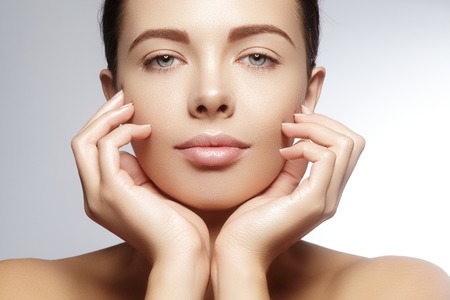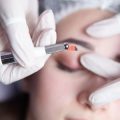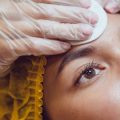Understanding Rosacea in the UK Climate
Rosacea is a common yet often misunderstood skin condition, particularly among residents of the United Kingdom. Characterised by persistent redness, visible blood vessels, and occasional flare-ups of bumps or pimples, rosacea can be both physically uncomfortable and emotionally challenging. For those living in Britain, managing rosacea requires a nuanced approach due to the country’s unique climate and lifestyle factors. The unpredictable British weather—marked by sudden shifts from damp cold to bursts of sunshine—can easily trigger or worsen symptoms. Additionally, central heating during chilly months, exposure to gusty winds, and even traditional British habits like enjoying hot beverages or alcohol can all contribute to rosacea flare-ups. Understanding these local triggers is the first step towards developing an advanced skincare routine tailored to the needs of UK residents with sensitive, rosacea-prone skin. By recognising how everyday environmental factors interact with your skin, you empower yourself to make mindful choices that support a calmer, healthier complexion.
2. Building a Gentle and Effective Skincare Routine
Establishing an advanced skincare routine for rosacea-prone skin demands both mindfulness and consistency. UK residents are fortunate to have access to many suitable products, but the key lies in constructing a regimen that soothes irritation while addressing your unique skin needs. Here’s how you can build an effective yet gentle routine, step by step.
Step-by-Step Guide to a Rosacea-Friendly Routine
| Step | Purpose | Recommended Ingredients | UK-Available Product Suggestions |
|---|---|---|---|
| Cleansing | Remove impurities without stripping skin | Ceramides, Glycerin, Niacinamide | Cetaphil Gentle Skin Cleanser, CeraVe Hydrating Cleanser |
| Toning (optional) | Soothe and prep skin for next steps | Aloe Vera, Rose Water, Panthenol | La Roche-Posay Serozinc, Simple Soothing Facial Toner |
| Treatment/Serum | Target redness and strengthen barrier | Azelaic Acid, Niacinamide, Allantoin | The Ordinary Azelaic Acid Suspension 10%, Eucerin AntiREDNESS Soothing Care |
| Moisturising | Hydrate and protect skin’s barrier | Squalane, Shea Butter, Hyaluronic Acid | Avene Tolerance Extreme Emulsion, Neutrogena Hydro Boost Gel Cream |
| Sun Protection (AM only) | Shield sensitive skin from UV damage | Zinc Oxide, Titanium Dioxide (mineral sunscreens) | La Roche-Posay Anthelios Ultra-Light SPF50+, Eucerin Sensitive Protect SPF50+ |
Tips for Maximising Comfort and Results
- Patch test new products: Always try a small amount behind your ear or on your jawline before full application.
- Simplify when flaring: During flare-ups, reduce your routine to just cleanser, moisturiser and sunscreen until your skin calms.
- Avoid triggers: Stay clear of alcohol-based toners, essential oils and harsh exfoliants that may worsen sensitivity.
- Pace your progress: Introduce one new product at a time to monitor how your skin responds.
- Opt for fragrance-free: Seek out unscented formulas to minimise potential irritants.
Your Confidence, Your Calm: Why It Matters
Caring for rosacea-prone skin in the UK doesn’t mean settling for less – it means choosing what is right for you with intention and gentleness. By following these practical steps and selecting widely available British pharmacy favourites, you empower yourself with daily comfort and visible calmness. Remember: consistency is your greatest ally in nurturing resilient, healthy-looking skin.
![]()
3. Recommended Ingredients and Products
When managing rosacea-prone skin, selecting the right ingredients is crucial for minimising flare-ups and supporting your skin’s natural barrier. UK experts consistently recommend seeking out gentle, soothing ingredients while steering clear of known irritants. Here’s a confident yet caring guide to help you navigate British pharmacy shelves and high-street brands with ease.
Soothing Ingredients to Look For
Opt for formulations featuring niacinamide, which is well-loved in the UK for its ability to calm redness and reinforce the skin’s protective layer. Aloe vera and chamomile extract are both gentle botanicals that soothe irritation—look for these in moisturisers or serums from trusted brands like Simple or Boots Botanics. Centella asiatica (cica) is another ingredient gaining popularity on British high streets; it’s renowned for reducing inflammation and promoting healing. Additionally, ceramides help strengthen the skin barrier, making products from CeraVe (widely available at Boots and Superdrug) an excellent choice.
Ingredients Best Avoided
If you’re prone to rosacea, steer clear of products containing alcohol denat., which can dry out and irritate sensitive skin. Fragrances—both synthetic and natural—are frequent culprits behind flare-ups, so prioritise fragrance-free formulas where possible. Avoid harsh exfoliants like scrubs with rough particles or acids such as glycolic acid. If you’re interested in chemical exfoliation, consider milder options like polyhydroxy acids (PHAs), but always patch test first.
Expert-Recommended UK Products
The British high street offers a wide array of rosacea-friendly options. Cetaphil Gentle Skin Cleanser, available at most chemists, is a staple for its non-stripping formula. For moisturising, Eucerin UltraSensitive Soothing Care is lauded by dermatologists across the UK for its calming properties. When it comes to sunscreen—a daily must—try La Roche-Posay Anthelios Ultra-Light Fluid SPF 50+; it’s lightweight and suitable for even the most delicate complexions.
A Personalised Approach
No two people experience rosacea identically. Take time to observe how your skin reacts to different ingredients, and don’t hesitate to consult a local pharmacist or dermatologist if you have concerns. Remember: consistency and patience are key to seeing results, so treat your skincare routine as a gentle ritual rather than a quick fix.
4. Incorporating Sun Protection Year-Round
Many UK residents mistakenly believe that sun protection is only necessary during the height of summer. However, if you have rosacea-prone skin, safeguarding yourself from UV exposure should be a daily commitment—no matter the season. The UK’s weather may be famously changeable and often overcast, but harmful UVA and UVB rays still penetrate clouds, potentially triggering flare-ups or worsening redness.
Understanding Why Daily Sun Protection Matters
Rosacea-prone skin is particularly sensitive to sunlight, with even mild exposure causing irritation, increased redness, or persistent flushing. That’s why dermatologists consistently recommend integrating effective sun protection into your advanced skincare routine. It’s not just about preventing sunburn; it’s about minimising inflammation and maintaining skin calmness throughout the year.
Sun Protection Strategies for Every Season
| Season | Common Weather in the UK | Recommended Protection Methods |
|---|---|---|
| Spring/Summer | Mild to warm, intermittent sunshine, occasional heatwaves | Apply broad-spectrum SPF 30+ every morning; wear wide-brimmed hats and sunglasses; seek shade during peak hours (11am-3pm); reapply sunscreen every two hours when outdoors |
| Autumn/Winter | Crisp air, frequent cloud cover, shorter daylight hours | Continue using SPF 30+, especially if spending time outside; choose moisturisers with built-in SPF; protect against windburn with scarves; don’t be lulled into skipping sunscreen on cloudy days |
Choosing the Right Sunscreen for Rosacea-Prone Skin
Select mineral-based sunscreens containing zinc oxide or titanium dioxide. These are less likely to irritate sensitive skin compared to chemical filters. Avoid products with alcohol, fragrance, or other potential triggers. If you’re unsure which formula works best for you, consider patch-testing on a small area before full application.
Building a Resilient Habit: Practical Tips for UK Residents
Keen to make sun protection second nature? Keep your chosen sunscreen next to your toothbrush as a daily reminder. Opt for lightweight formulas that sit comfortably under makeup or on bare skin. Remember—even if you’re working indoors near windows, UVA rays can still reach you. By embracing these strategies all year long, you’ll empower your skin to stay calm and resilient—whatever the unpredictable British weather brings.
5. Lifestyle Adjustments for Everyday Confidence
Managing rosacea-prone skin in the UK often means navigating a unique set of daily triggers—from steamy cups of tea to unpredictable weather. While advanced skincare routines lay a strong foundation, your everyday choices are equally important for maintaining calm, comfortable skin and nurturing your self-confidence.
Mindful Management of Hot Drinks
Nothing says British comfort quite like a hot cuppa, but for those with rosacea-prone skin, steaming drinks can sometimes trigger flushing. Tip: Let your tea or coffee cool slightly before sipping, and opt for herbal blends such as chamomile or rooibos which are often gentler on sensitive skin. Remember, enjoying your favourite rituals is about balance—there’s no need to miss out entirely.
Navigating Central Heating Sensibly
The British climate makes central heating essential for much of the year, but dry, warm indoor air can aggravate rosacea symptoms. Tip: Place a bowl of water near radiators or use a humidifier to maintain moisture in the air. Choose gentle, hydrating skincare products to counteract dryness and always give yourself permission to step away from stuffy rooms if your skin feels flushed.
Outdoor Activities: Embrace with Care
Enjoying the great British outdoors—whether it’s a stroll through Hyde Park or a countryside ramble—should be uplifting, not stressful. Protect your skin by applying fragrance-free sunscreen (SPF 30 or higher), wearing a wide-brimmed hat, and choosing breathable fabrics. If you’re caught in a chilly wind or sudden rain, don’t worry; gently pat your face dry and reapply moisturiser as needed. Your confidence grows each time you adapt to these challenges with kindness towards yourself.
Gentle Guidance for Everyday Self-Confidence
Rosacea doesn’t define you; it’s just one aspect of your experience. On days when redness flares up, remind yourself that self-care is an act of strength, not vanity. Connect with supportive communities—many UK-based groups exist both online and offline—and remember: confidence shines brightest when you treat yourself with patience and respect. Every thoughtful choice you make is a step toward greater ease and assurance in your own skin.
6. When to Seek Professional Support
While advanced skincare routines can make a significant difference in managing rosacea, it’s important to recognise when expert intervention is necessary. If you notice your redness, bumps, or flare-ups are worsening despite consistent care, or if you experience pain, eye irritation, or persistent discomfort, it’s time to consult a healthcare professional. For UK residents, your first port of call should be your GP, who can assess your symptoms and refer you to a dermatologist if needed. Don’t hesitate—early support can prevent complications and improve your quality of life.
Understanding NHS Resources
The NHS offers comprehensive resources for those struggling with rosacea. Your GP can provide an initial diagnosis and recommend prescription treatments such as topical creams or oral medications. In some cases, they may refer you to a dermatologist for specialised care. The NHS website also has up-to-date guidance on skin conditions, so be sure to utilise these trusted resources for reliable information.
Private Dermatology Options
If you’re seeking faster appointments or specific expertise, private dermatologists are widely available across the UK. While this option involves out-of-pocket costs, many find the convenience and tailored approach worthwhile. Look for consultants registered with the General Medical Council (GMC) and the British Association of Dermatologists for peace of mind.
Empowering Yourself Through Support
Remember, there is no shame in asking for help—seeking professional advice is a sign of strength and self-care. Whether through the NHS or private routes, timely intervention can help you regain control over your skin health. Stay proactive, listen to your body’s signals, and know that with the right support, managing rosacea becomes far less daunting.


